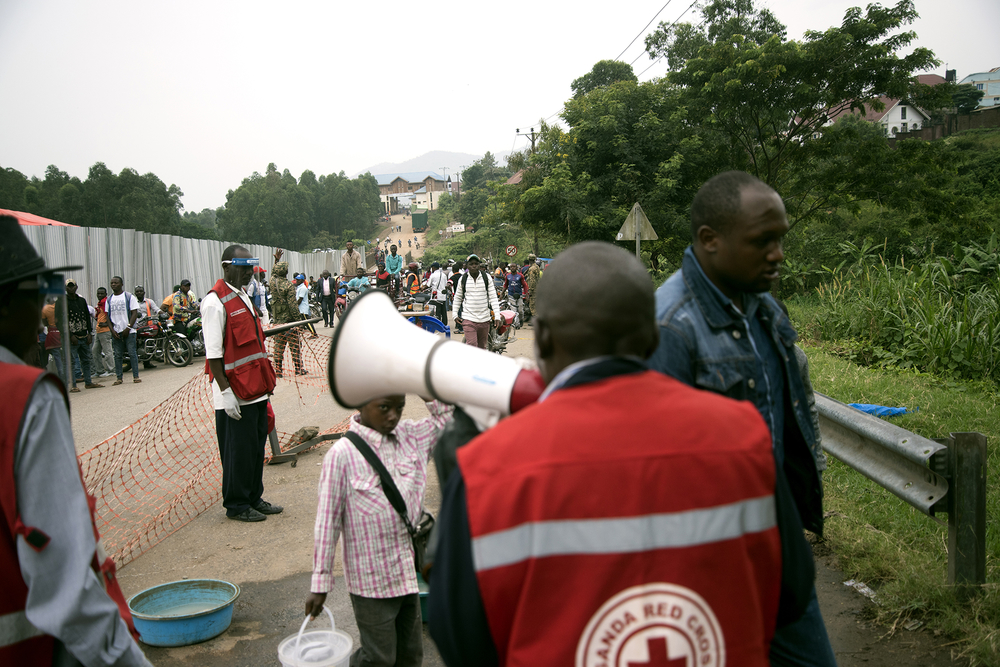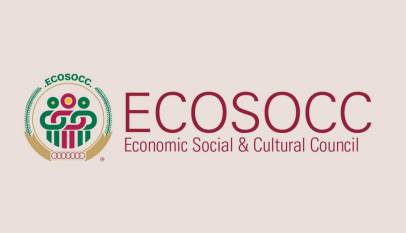OP-ED: Why African governments must manage their own crisis communication, By Jessica Ilunga
For better or worse, some crises attract more international attention than others. More attention also means more international humanitarian actors who want to jump into the crisis bandwagon. These international humanitarian actors include both international organizations (such as the World Health Organization, and UNICEF) and NGOs (such as Oxfam, Doctors Without Borders, and the Red Cross).

As the affected country often lacks the financial and technical resources to tackle the crisis on its own, the involvement of a plethora of international players is inevitable. However, there is a high price to pay for this high dependence on external resources. The price is the loss of control over your narrative during a crisis. At least, that has been my experience during the ongoing Ebola outbreak in DRC.
I explained in my previous articles that African governments must carefully manage their communication when a major crisis hits their country. An effective crisis communication strategy can help to mitigate the adverse effects of that crisis on the country’s economy (Part I). It can also contribute to empower communities and spur positive behavior change (Part II).
Unfortunately, this is not always easy to achieve when the media space is dominated by international entities, leaving little room for the voice of national actors. When it comes to communication, humanitarian actors have an undeniable comparative advantage compared to African governments. They have very competent and professional communication teams who have longstanding relationships with major international media outlets. They are also seen as more trustworthy than government actors. As a result, international actors have a greater influence in shaping the narrative of the crisis at the global and national levels.
Challenges posed by humanitarian communication
Communication is a powerful tool perfectly mastered by international organizations and NGOs. Through strategic communication campaigns, they actively seek to influence key stakeholders (journalists, donors, and local populations) by shaping the representation of the crisis in the media. Their communication strategy creates several challenges for government communicators.
First, the “white savior complex” is inherent in humanitarian communication. That is why it is so important for donors to announce how much money they give. Everything, from thermometers to motorbikes, will have branded stickers on it. Their dominant narrative will always be about the benevolent international community saving helpless Africans. Such framing ultimately serves the purpose of legitimizing humanitarian interventions around the world.
The downside is that it disempowers the local government and affected communities by perpetuating the image of Africans being passive victims. In that context, it is much harder for a government to show that it has some control over the situation. After all, the principal tenet of the humanitarian system is that the international community must intervene to replace a failing government. There is also a sense that they know what is best for the population, more than the government.
Second, the advocacy goals of humanitarian actors take precedence over the objective of informing the public. One should always keep in mind that every single international partner has its own agenda. During a crisis, this agenda will most certainly include raising funds for their operations, by demonstrating they are uniquely placed to solve the crisis. To achieve these objectives, humanitarian organizations need to capture media attention.
It often requires dramatization, exaggeration, and oversimplification of events. I remember when community violence was at its peak, all international partners were in full fundraising mode, making a lot of noise through interviews and opinion pieces. I just stopped reading international news about Ebola because it was just too much noise that was not helping nor relevant for field activities.
On the contrary, in some cases, the noise just added more confusion by sending mixed and alarmist messages to communities. With social media, the world has become a global village. What is said in Geneva can end up in a popular WhatsApp group for the youth in Beni [DRC] in less than an hour. In other cases, and more worrying, the divisive tone used by some NGOs accentuated community mistrust toward the government. I noticed that when things go well in the field, international actors tend to praise themselves, minimizing, or even ignoring, the role of government actors.
But when things get complicated, they shamelessly point fingers at the government, overlooking their role in the situation. Once, we had an incident with an international NGO. Its representatives met with local civil society leaders to tell them they could provide better health services than the ministry of health. So they asked the civil society to advocate for humanitarian actors to be given a more significant leadership role in the Ebola response.
Lessons for African governments
There are several ways African governments could counter the disproportionate influence of humanitarian actors in shaping the representation of a crisis, and ultimately the African narrative in the media.
Invest in national media
If we believe that African voices are marginalized in Western media, developing a reliable and professional media landscape nationally is the best answer. African media face several obstacles, mainly limited financial resources and lack of training of local journalists, especially in rural areas. Most journalists I’ve met in DRC learned on-the-job and never went to journalism schools.
Till today, I haven’t met a single Congolese journalist with an expertise in public health who was able to produce an in-depth reporting of the ongoing Ebola outbreak. When I wanted to see a particular analysis in the media, I had to do it myself and include it in the ministry’s daily Ebola updates. I knew that journalists would then copy-paste it. It is a missed opportunity for Congolese journalists, given the number of diseases that plague the country. By improving the quality of reporting on health issues, specialized health journalists would help to educate the population and support behavior change.
Unfortunately, as the government neglects to support the media, even the media landscape in DRC has been ‘humanitarianized’. International donors are filling the void by actively funding Congolese media through media training as well as operational, technical, and financial support. For instance, several bilateral and multilateral donors provide such assistance to Congolese media as part of their effort to promote democracy in the country. I would say it is precisely because the media are so crucial for our nascent and fragile democracy that they should be protected from foreign funding and influence.
That influence might explain why local journalists tend to reproduce the problem-focused reporting style of their Western counterparts. I would love to see local media doing more solutions journalism that critically explains responses to social issues through the lens of the wider African experience.
Regain trust through citizen engagement
As said above, there is a white savior attitude inherent to all humanitarian interventions. It reinforces the message that the failing government is unable to care for its own citizens’ wellbeing, and salvation will only come from international heroes. This narrative has become a widely shared belief among Africans.
In the case of DRC, this is the consequence of decades of government failure to provide its citizens with the most basic public services. There is no question about that. The only way for African governments to weaken the grip of the paternalistic narrative over the collective mind is to regain their citizens’ trust by doing their job. Most specifically, they must deliver what their citizens want and deserve: a peaceful and dignified life. It requires comprehensive social, economic, and political reforms as well as sustained citizen engagement efforts.
Communication professionals can help governments reconnect with their citizens by better explaining public policies. More importantly, they can increase public trust by involving citizens in the design of policies that will affect their life.
Conclusion: “Until the lion learns how to write, every story will glorify the hunter.”
When it comes to the African narrative, this is my all-time favorite quote.
Crises come in all shapes and sizes. Although unpleasant to tackle, a crisis offers government communicators an opportunity to bring more local voices to the fore. To achieve this, African governments must take communication seriously. While my comments about humanitarian communication might sound harsh, I do find their communication skills very impressive. African governments could learn a thing or two from them. Building credibility and earning trust take time. There is no shortcut, but I believe the investment is worth it.
The role of African communication professionals is not to replace one single story with another, or even prevent other actors from telling their side of the story. Our mission is to bring a more balanced, contextualized, and solution-focused perspective on events in Africa. This can be done by engaging more actively with international media and not remaining passive bystanders. It also involves creating our own platforms to share our narrative more freely. I particularly like Gabon’s Medias241 and Nigeria’s Stears Business. Both online media prove that, when young Africans decide to build their own table, they can do wonders.
Jessica Ilunga is a communciations consultant; this article was originally published on Africa Communications Week – the views expressed in it are the author’s and do not necessarily represent the editorial policy of African Newspage











